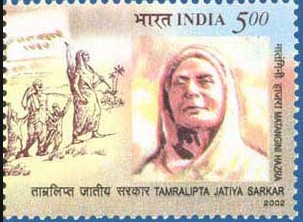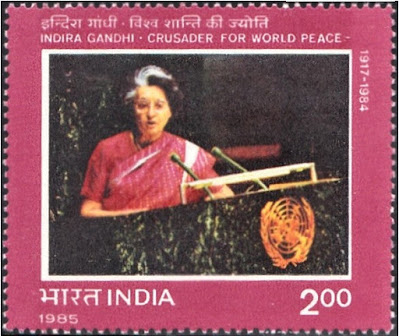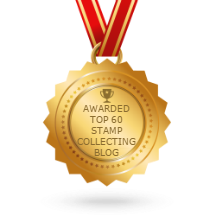Women’s Day special
'Great Women of India'
On this International Women's Day, let me introduce here some of the 'Great Women of India' who had contributed for the cause of Indian Flag and became part of its history.
2) MRS. KUMUDINI BASU,
Maker of the first flag hoisted on the Boycott Day on 6th August 1906 in Calcutta during Anti-partition Movement of Bengal.
6) ARUNA ASAF ALI on August 9,1942 hoisted the Tricolour at the Gowalia Tank Maidan, Bombay to formally announce the commencement of the "Quit India Movement".
7) MATANGINI HAZRA, at the ripe age of 70 became the first woman flag martyr from Bengal on 29 Sept 1942 during the Quit India Movement.
8) KANAKLATA BARUA of Assam, a young girl then, was shot dead on 20 September 1942 while attempting to hoist the National Flag atop a police station at Gohpur.
10) MRS.SAROJINI NAIDU, the only lady speaker during the Constituent Assembly "Flag Debates" on July 22, 1947.
12) MRS. INDIRA GANDHI, India's first female Prime Minister hoisted the Flag at Red Fort on Independence Day, total 16 times.
Women Freedom Fighters of India : Bharat ki Veeranganaen
 - Eeshita Basu Roy
- Eeshita Basu RoyIndia became Independent on 15th August 1947. Independence did not come easily .The entire history of the freedom movement is replete with the saga of bravery, sacrifice and political sagacity of great men and women of the country. The list of great women whose names have gone down in history for their dedication and undying devotion to the service of India is a long one. There are endless number of women who daringly fought for India’s freedom with their true spirit and undaunted courage and had faced various tortures, exploitations and hardships to earn us freedom that we enjoy today in our motherland India.
It is a very difficult task to list out all Women freedom fighters and equally difficult to segregate a few amongst them. With all respect and due apologies, furnishing below is a brief note on selected few women freedom fighters.
Woman's participation in India's freedom struggle began as early as 1817 when Bhima BaiHolkar fought bravely against the British colonel Malcolm and defeated him in guerilla warfare. In 1824 Rani Channama of Kittur resisted the armed might of the East Indian Company.
Kittur Rani Channamma(23 October 1778 – 02 February 1829)
KitturChannamma was the Queen of Kittur, a princely state in Karnataka. She was one of the Indian female ruler to lead an armed rebellion against the British East India Company in 1824 because of the effect of doctrine of lapse. The resistance ended with her arrest and she became a symbol of the independence movement in India. In the state of Karnataka, she is celebrated along with Abbakka Rani, KeladiChennamma and OnakeObavva, as the foremost women warriors and patriots. Chennamma was a member of the Lingayat.
Rani Lakshmi Bai of Jhansi (Jhansi ki Rani )(19 November 1828 – 17 June 1858)
Rani Lakshmi Bai was one of the leading warriors of India’s freedom struggle who laid an outstanding influence on the succeeding women freedom fighters.She used to go into the battlefield dressed as a man. Holding the reins of their horse in her mouth she used the sword with both hands. She fought valiantly and although beaten she refused to surrender and fell as a warrior should, fighting the enemy to the last. Her remarkable courage inspired many men and women in India to rise against alien rule.
A commemorative postage stamp on Martyrs of The First War of Independence, 1857 revolution.The stamp depicts M. F. Hussain’s painting on Rani Laxmi Bai.
Jhalkari bai of Jhansi (November 22, 1830 –1890)
A prominent fighter during the Rebellion of 1857, one woman driven by sheer fortitude and courage was able to strike fear in the hearts of the British army and leave behind a rich legacy for millions to emulate.
Sarojini Naidu (The Nightingale of India) (13 February 1879 – 02 March 1949)
She campaigned for the Khilafat Movement.When Gandhi launched the Civil Disobedience Movement, she proved a faithful lieutenant. After Gandhi's arrest she had prepared 2,000 volunteers under the scorching sun to raid the Dhahran Salt Works. She gave up writing poetry and fully devoted herself to emancipation of women, education unity etc. She became a follower of Gandhiji and accompanied him to England.
Begum Hazrat Mahal (1820—1879)
Begum Hazrat Mahal was a great Indian freedom-fighter who played a major role during India's First War of independence (1857-58). She was also known as the Begum of Awadh (Oudh) and was the wife of the then Lucknow ruler, Nawab Wajid Ali Shah.
She led a band of her supporters against the British, and was even able to seize the control of Lucknow. She worked in close association with other leaders of India’s First War of Independence, including Nana Sahib. Begum was not only a strategist but also fought on the battlefield. When the forces under the command of the British re-captured Lucknow and most part of the Awadh, she was forced to retreat. When her forces lost ground, she fled Oudh and organized soldiers again in other places. She turned down all offers of amnesty and allowances by the British rulers.
Finally, she took refuge in an asylum in Nepal, where she died in the year 1879. To acknowledge her endless effort in fighting for the freedom of country, the Government of India issued a stamp on 10th May 1984.
Matangini Hazra (19 October 1870 – 29 September 1942)
Madam Bhikaiji Cama (24 September 1861 - 13 August 1936)
Rani Gaidinliu (Rani of the Nagas) (26 January 1915- 17 February 1993)
Born in Nangkao village of Manipur she came in contact with the political and spiritual leader of the Nagas,Haripau Jadonang who started a movement to drive away the British from Manipur. When Jadonang was hanged by the British,Gaidinliu took over the leadership and challenged the Britishers. The British Govt. tried to suppress her movement. She went underground. The army made a house to house search and finally captured her in 1932 and sentenced her to life imprisonment. Jawaharlal Nehru called her "Rani of the Nagas" for her indomitable spirit and aggressive fight against the British. She spent more than 15 years in jail and was released only after Independence. She was honoured with Tamrapatra and Padma Bhushan.She died on 17-02-1993.
Aruna Asaf Ali(16 July 1909 - 29 July 1996)
Aruna Asaf Ali was born in a Bengali Brahma Samaj family at Kalka in Haryana. She married Asaf Ali a prominent lawyer of Delhi against convention. She actively participated in the National Movement for Independence. Following the arrest of all congress leaders in 1942 she went underground to guide the movement evading police arrest. She became the symbol of the spirit of youth in this country guiding and leading the National Movement from underground. She remained underground till 1946 when the warrant of arrest was withdrawn. Aruna belonged to the heroic age of Freedom Movement. With this background, after Independence she could not adjust to the political realities and chose to live in retirement till her death on 29th July 1996. She was awarded Bharat Ratna (1997) Posthumously.
Annie Besant(1 October 1847 – 20 September 1933)
Kasturba Gandhi (Ba) (11 April 1869 – 22 February 1944)
Kamala Nehru (1 August 1899 – 28 February 1936)
Durgabai Deshmukh (15 July 1909 – 9 May 1981)
She was the mother of social work in India. She was born in a middles class Andhra family in Kakinada. In 1937 she founded Andhra Mahila Sabha in Madras which to-day runs two hospitals, 2 colleges and 3 high schools. As Member of Parliament she worked to set up a social welfare board on 13-8-1953 to carry out programmes of educating, training and rehabilitating the needy women, children and the disabled. She was the recipient of a number of awards including Padma Bhushan and the UNESCO award for outstanding work in the field of literacy.
Rajkumari Amrit Kaur (2 February 1889 – 6 February 1964)
Rajkumari Amrit Kaur was an eminent Gandhian, a freedom fighter, and a social activist.She was also a member of the Constituent Assembly, the body that framed the constitution of India. She was the first health minister of independent India & served for ten years in the capacity. She co-founded the All India Women's Conference in 1927 and participated in Gandhi-led 240-mile Dandi March in 1930. In 1942, she participated in the Quit India Movement, and the Raj authorities imprisoned her.
Nellie Sengupta ( 1 December 1886 - 23 October 1973 )
Pandita Ramabai (23 April 1858 – 5 April 1922)
PanditaRamabai was a social worker, scholar and a champion of women's rights, freedom and education. PanditaRamabai participated in the freedom movement and was one of the 10 women delegates of the Congress session of 1889. She founded Arya MahilaSamaj . The purpose of the society was to promote the cause of women's education and deliverance from the oppression of child marriage.
Meera Behn (22 November 1892 – 20 July 1982)
Madeleine Slade (MiraBehn) daughter of the British Rear-Admiral Sir Edmond Slade, was a British woman who left her home in Britain to live and work with Mohandas Gandhi, the leader of the Indian Independence Movement. She devoted her life to human development, the advancement of Gandhi's principles. She was christened “Meera” by Gandhiji. She joined the Satyagrahmovement and was jailed thrice. She was awarded Padma Vibhushan in 1982
.Kamala devi Chattopadhyay (3 April 1903 – 29 October 1988)
Kamaladevi Chattopadhyay was an Indian social reformer and freedom fighter. She is most remembered for her contribution to the Indian independence movement; for being the driving force behind the renaissance of Indian handicrafts, handlooms, and theatre in independent India; and for upliftment of the socio-economic standard of Indian women by pioneering the co-operative movement.
In 1974, she was awarded the Sangeet NatakAkademi Fellowship the highest honour conferred by the Sangeet NatakAkademi, India's National Academy of Music, Dance & Drama.
Savitri Bai Phule (3 January 1831 – 10 March 1897)
Savitri bai Phule was an Indian social reformer, educationalist, and poet from Maharashtra. She is regarded as the first female teacher of India. Along with her husband, Jyotirao Phule, she played an important and vital role in improving women's rights in India.
Rani Avanti Bai (16 August 1831 - 20 March 1858)
Subhadra Kumari Chauhan (1904 -1948)
Rukmini Lakshimipathi (6 December 1892 – 6 August 1951)
-Eeshita Basu Roy : email : eeshita2015@gmail.com




























































.jpg)














No comments:
Post a Comment